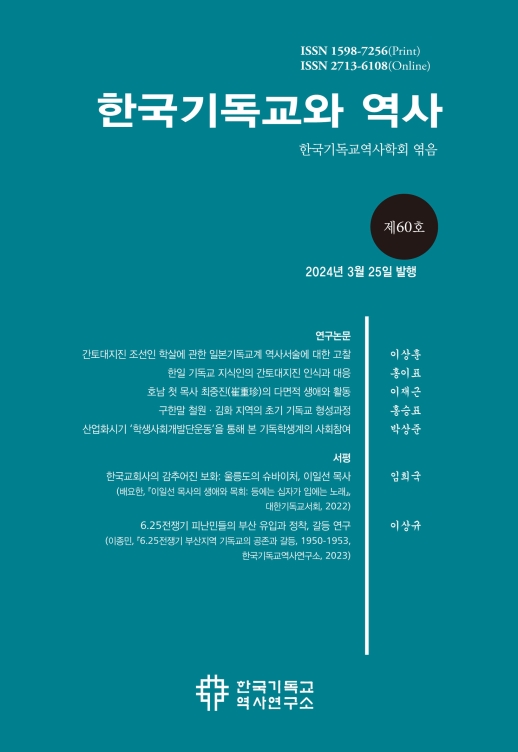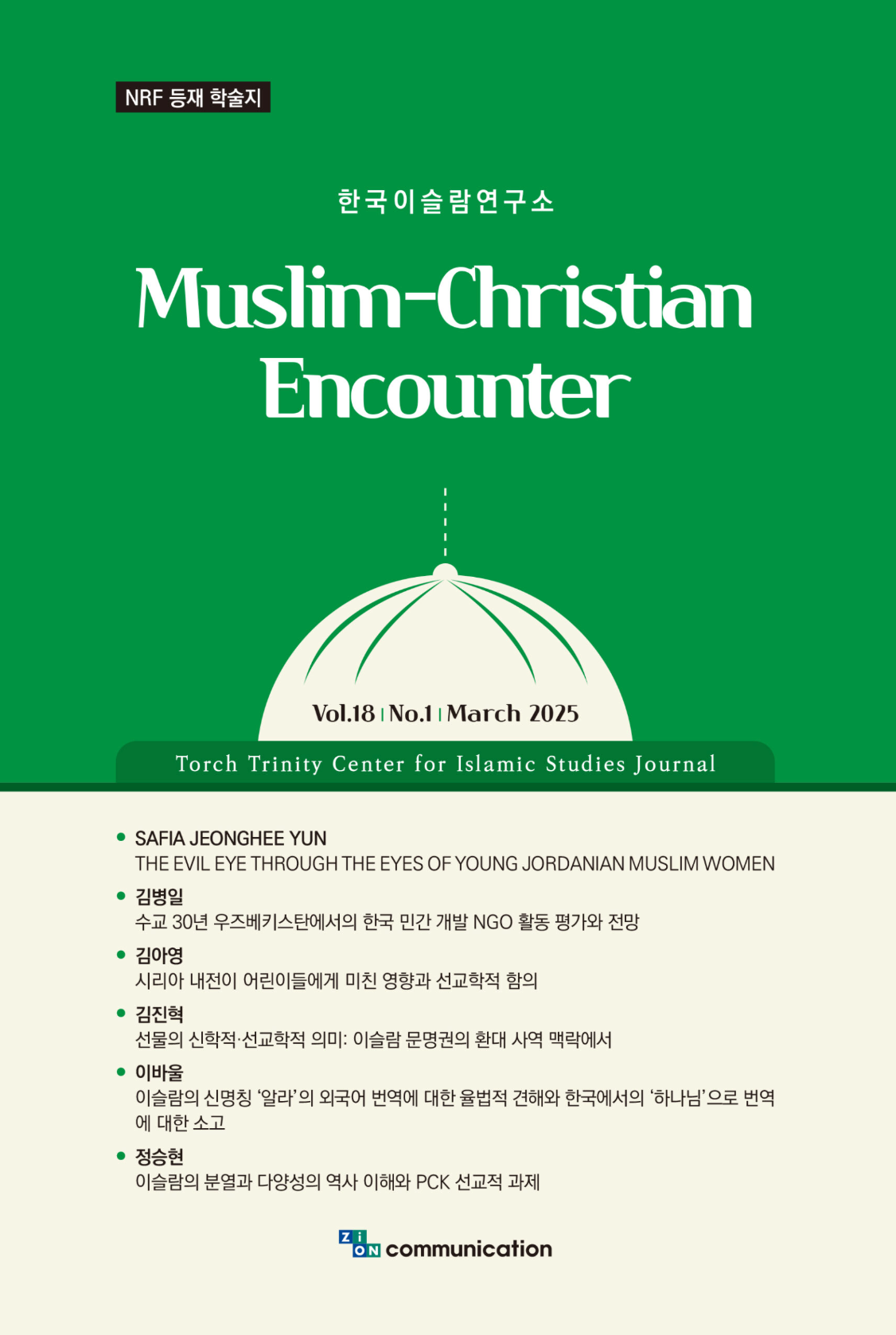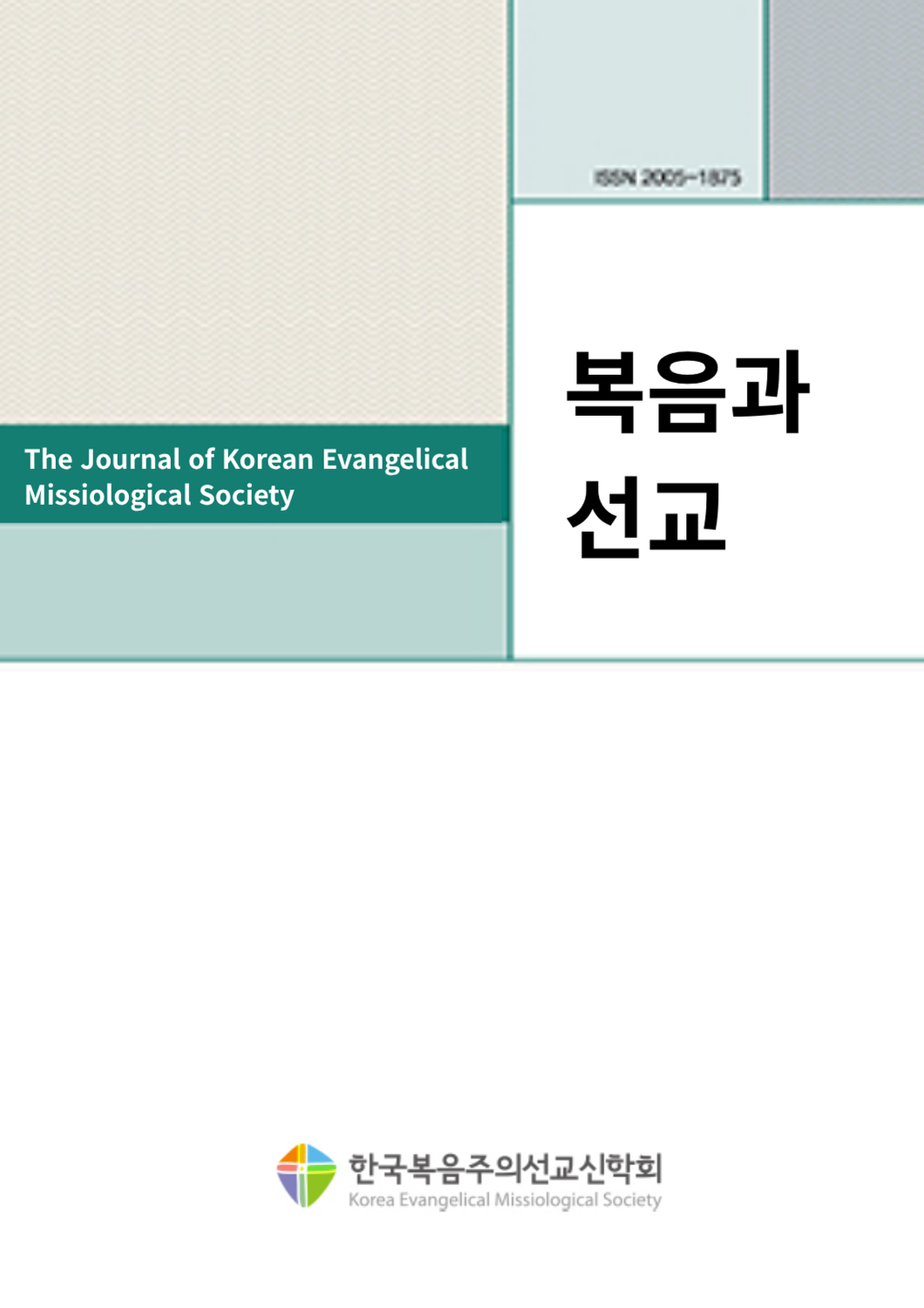본 연구는 산업화시기 기독교의 사회참여 사례로서 학생사회개발단운동(학사단운동)의 전개 모습을 살펴보는 것을 목적으로 한다. 1960년대부터 산업화가 본격적으로 이루어지면서 한국사회는 경제개발의 이면에서 인간과 관련한 여러 문제를 노정하고 있었다. 한편 기독교의 사회적 역할을 강조하는 사회참여담론은 20세기 점진적으로 발전해 오다가 1968년 세계교회협의회(WCC) 웁살라총회가 기폭제가 되어 국내로 유입되었다. 이와 같은 상황들은 한국의 기독교계 일각에서 사회 개혁을 위한 실천적 노력이 나타나는 결과로 이어졌다. 학사단운동 역시 이러한 맥락에서의 활동이었다. 대학 내 기독학생회 구성원들에 의해 전개된 학사단운동은 지역 주민들의 의식화와 조직화를 통해 사회정의를 실현시키고자 하였다. 그런가 하면 학사단운동에 참여하던 기독학생들은 민주화인권운동에도 참여하였는데, 민청학련사건을 계기로 학사단운동보다 반독재 민주화투쟁에 집중하게 된다. 학사단운동은 산업화시기 불완전하게나마 시민사회운동의 성격을 엿볼 수 있는 주요한 사례라는 점에서 본 연구가 갖는 의미를 찾고자 한다.
The purpose of this study is to examine the development of the Student Social Development Group Movement as an example of Christianity's social participation in society during the industrialization period. With industrialization in the 1960s, Korean society was revealed various related to humans behind economic development. Meanwhile, the discourse on social participation emphasizing the social role of Christianity developed gradually in the 20th century, and in 1968, with Uppsala General Assembly of the World Council of Churches(WCC) as a catalyst was introduced into Korea. These situations resulted in practical efforts for social reform in some of the Christian circles in Korea. The Student Social Development Group Movement was also an activity in this context. The Student Social Development Group Movement which was developed by members of the Christian students in the university tried to realize social justice through consciousness and organization of local residents. On the other hand, the Student Social Development Group Movement’s members also participated in the democracy and human rights movement, and in the wake of the National League of Democratic Youth and Students incident, they focused on the anti-dictatorship democratization struggle rather than the Student Social Development Group Movement. I would like to find the meaning of this study in that the Student Social Development Group Movement is a major example of the nature of the civil society movement incompletely during the industrialization period.







